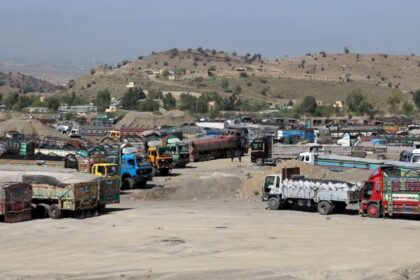RASC News Agency: Local sources in northern Afghanistan’s Faryab province have confirmed that Taliban intelligence forces have arrested at least 15 former members of the national security forces and respected community elders in recent days. Witnesses report that the detainees, taken from Khwaja Sabz Posh district, were swiftly transferred to Faryab’s central prison under heavy guard.
Relatives of those detained said that Taliban operatives conducted night raids in Badghisi village, storming homes under cover of darkness, beating residents, and dragging individuals from their families before transporting them to the intelligence detention facility in Maimana, the provincial capital. Community members describe a terrifying pattern of nocturnal assaults that continues unabated, leaving villages paralyzed with fear.
Families of the detainees have been denied all access to their loved ones. No explanation has been provided for the arrests, and the Taliban have issued no warrants, charges, or public statements regarding the detentions. Relatives say they remain completely cut off from information about the detainees’ fate.
“We don’t know why they were taken, and we have no way to contact them,” one family member told RASC News Agency. “We only hear rumors. Every night, more houses are raided. People are terrified.”
Local residents warn that the regime’s silence has deepened mistrust and heightened tensions in the province, where the Taliban’s heavy-handed intelligence apparatus is increasingly seen as an occupying force rather than a legitimate authority.
These arrests follow another incident just weeks earlier, when Taliban operatives in Maimana detained six individuals including one Uzbekistani national accused of alleged links to the so-called Islamic State group. Independent analysts note that such accusations are routinely deployed by the Taliban as pretexts to suppress dissent, providing a façade of counterterrorism while enabling the regime to tighten its grip on communities long resistant to its domination.
Human rights advocates warn that the recent wave of detentions in Faryab is part of a broader strategy of preemptive repression, aimed at neutralizing potential opposition figures former soldiers, community leaders, and ethnic representatives who might galvanize resistance in the north.
“By targeting elders and ex-soldiers, the Taliban are not pursuing justice; they are dismantling the social fabric of Faryab,” one civil activist explained. “These arrests are not about security they are about silencing communities that refuse to submit.”
The arrests have spread an atmosphere of dread across Faryab. Families live under the constant threat of nighttime raids, unable to protect their relatives or demand answers. Local activists warn that such arbitrary repression risks inflaming ethnic tensions, undermining fragile coexistence in a province historically marked by diversity and resistance to Taliban rule.
Despite mounting anxiety, the Taliban have offered no official explanation for the detentions. Their silence, analysts argue, is deliberate a calculated attempt to project impunity, intimidate communities, and remind citizens that they are governed not by law, but by fear.
The Faryab crackdown highlights once again the Taliban’s governing model: rule through secrecy, coercion, and terror. Far from consolidating stability, these heavy-handed tactics expose the regime’s profound insecurity in northern Afghanistan, where its authority rests on the fragile foundation of intimidation rather than consent.






